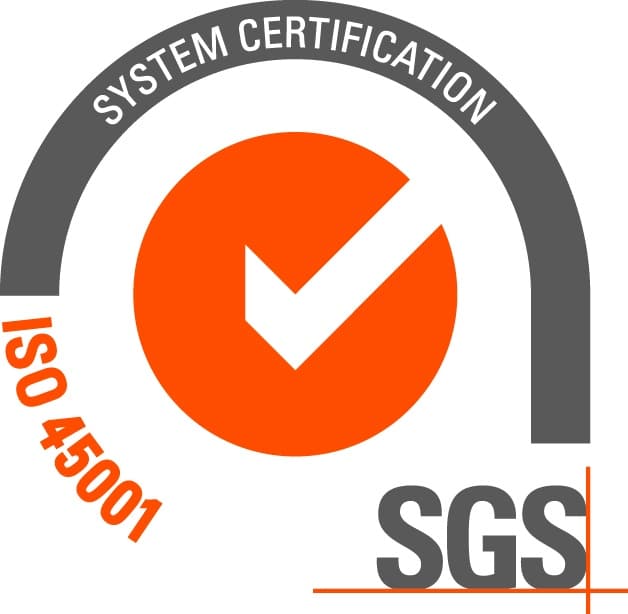IMPACT
REFORESTATION
AT SCALE
The use of perpetual trees to reforest cattle land to sequester carbon and produce bio-protein and oil with a quadruple impact on climate change

50 million trees will be planted over the next 6 years to…

…naturally sequester 1.2 million tons of CO2 each year

…produce 480,000 tons of bio-protein each year

…and replace more than 300,000 tons of fossil crude each year
Investancia runs high-impact reforestation programs
Investancia reforests degraded cattle land in silvopastoral systems, which improves pastures and allows cattle ranchers to continue their grazing activities simultaneously. Investancia reforests degraded cattle land that often-most is severely degraded due to very high salinity levels and seasonal drought followed by flooding, making the soils inapt for food production. Our tree species survive and even thrive in these challenging soils, and rough weather conditions. In fact, some species even improve soil health as they fix atmospheric nitrogenic and auto-fertilize naturally. Our reforestation programs reconnect green corridors whilst generating large-scale carbon sequestration, also known as nature-based carbon removals, which are certified under the Verified Carbon Standard and CCBS.
We use carefully selected productive and native tree species in our reforestation projects. The use of productive tree species allows to simultaneously produce low carbon proteins and non-edible vegetable oil as by-products to carbon sequestration. Non-edible oils produced from trees represent the lowest carbon intensity (CI) levels available for the production of renewable biofuels.
Our elite tree propagation and research center already represents the world’s largest production site for oil producing tree species We have built an elite tree propagation and research center which is scaled to reach an annual production capacity of over 7 million trees per year.
Reforestation Oil & Protein
“We need a device that can turn sunlight into fuel during our lifetime. It happens that nature has been providing us that photosynthesis tool forever - it is called a tree”.
Bill Gates
Perpetual trees to produce bio-protein and replace fossil fuel
Deforestation for agriculture and the transport sector are the largest contributors to GHG emissions and thus climate change.
The use of perpetual trees to reforest cattle land to sequester high levels of carbon and to produce bio-protein and oil has a quadruple impact on climate change, biodiversity and local communities.
Of all the non-food-land crops that produce oil and protein, we have selected tree species that are the best performing for reforestation purposes in South America. Together with our genetic partners, we are continuously developing and planting our locally adapted elite varieties of trees.
Reforestation with carefully selected tree species in silvopastoral systems ensures a categorization as low indirect land-use change (ILUC).

Our Solution
Carbon sequestration, protein and oil production through reforestation

Carbon sequestration
High levels of carbon sequestration from trees in the (sub) tropical environments

Freely grazing cattle
Silvopastoral systems combine trees and livestock on the same land, ensuring a low-ILUC

Bio-proteins
Low carbon protein produced from trees for animal consumption further avoid deforestation and carbon emissions from traditional anual protein crops

Reforestation Oil
Low Carbon fuel from reforestation feedstock is the “cleanest” fuel possible
In Summary
Reforestation and restoration of green corridors secures an immediate and quadruple effect on climate, community and biodiversity
Reforestation oil- and protein are the fastest and cheapest ways to decarbonize transport and agriculture simultaneously
Reforestation oil- and protein have the lowest Carbon Intensity (CI) levels and no indirect land-use change (ILUC)
Who We Are

The 50 million tree goal
We have laid down a strong foundation to scale our programs to reforest over 120,000 hectares of degraded cattle land in the Chaco, with more than 50 million trees.
Elite propagation and research center
Our elite tree propagation and research center already represents the world’s largest dedicated production site for oil producing trees. We have built an elite tree propagation and research center, with a current capacity of over 7 million trees a year. The site of 700 ha. has over 1 km on the Río Paraguay, one of South America’s most navigated rivers directly bordering Brazil. The site has its own harbour, landing strip and can also be easily visited by road via Brazil.


Dutch roots and Paraguayan soul
Our holding company is based in Rotterdam in the Netherlands. The port of Rotterdam is Europe’s largest producer of Renewable Diesel and is the major biofuel hub for the European market. Pongamia protein and oil from crushing at our site at the Rio Paraguay can reach all major ports in the world by only using low cost, low carbon vessel transport.

Quadriz – Our sister company develops, certifies and markets high-integrity carbon offsets from REDD+ forest conservation to world-wide corporations. Quadriz also markets the VCS-CCB carbon removal credits from Investancia’s reforestation programs.

R&D & Tree Propagation Management
Investancia is a leader within agro-research and a pioneer within tree research, development and tree propagation management.
Our local management team heads our Santa Rosanna operations with a workforce of 80+ local employees.































